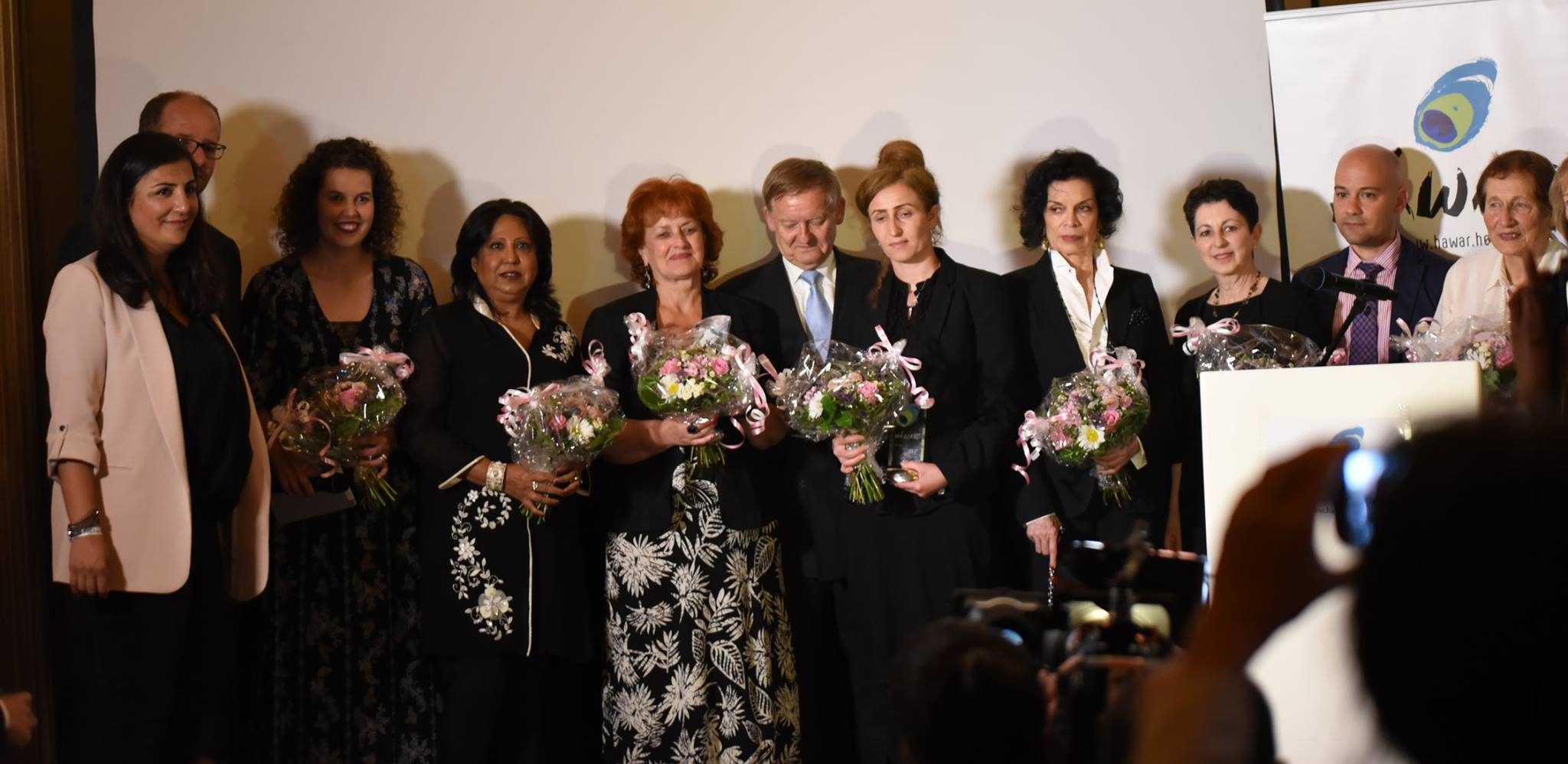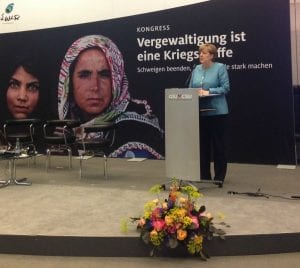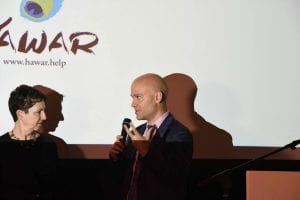From Victimhood to Empowerment

Düzen Tekkal, Michael Brand, Katie Gallus, Dr. Pramila Patten, Nusreta Sivac, Necla Mato, Prof. Dr. Robert Schmucker, Bianca Jagger, Deidre Berger, Dr. Günes Murat Tezcur, Ruth Barnett, Renate Schmucker Photo credits: HAWAR.help
The already highly precarious existence of Yazidi Kurds, a religious minority with long history of persecution, in Iraq took an ominous turn with the rise of the self-styled Islamic State in the summer of 2014. The IS assault against the Yazidi communities in the Sinjar area located in northwestern Iraq in August 2014 led to mass displacement, sexual slavery of Yazidi girls and women and massacres. Entire Yazidi villages were wiped out from the map. Thousands of Yazidi girls and women who were captured by the IS endured a life of abuse. Most of Yazidi areas have been liberated from the IS rule and some of these women eventually managed to regain their freedom. The genocidal campaign destroyed the world these women knew of and they were left with permanent scars for the rest of their lives.
The Sexual Violence as a Weapon of War: Ending the Silence, Empowering the Survivors Conference held in the German Parliament, Berlin, on June 29, brought the limelight on these women. Among the speakers were German Chancellor Angela Merkel, other high-ranking German politicians including Dr. Gerd Muller, the Minister of Economic Cooperation and Development; Pramila Patten, the UN Special Representative on Sexual Violence in Conflict; Bianca Jagger, a Council of Europe goodwill ambassador; Yazidi women survivors and survivors of the Holocaust and the Bosnian Civil War. The conference was organized by Hawar.help, a German NGO established by a prominent Yazidi-German journalist, Düzen Tekkal. Ms. Tekkal is the producer of Hawar, a visceral documentary about the IS violence against the Yazidi Kurds. She was also one of the participants at the Gendered Dynamics of International Security conference organized by the KPSP at UCF in February 2017.

German Chancellor Angela Merkel delivering a speech in the conference. Photo credit: Dr. Tezcür
The conference in Berlin had three key themes: empowering of the victims, ending the culture of impunity, and addressing the social stigma. The first theme concerns the importance of enabling victims of sexual violence to reclaim their agency and generate visible platforms for their self-expression. Given their deeply traumatic experiences, it is essential for them to have their voices heard by the broader public, and have societal support and empathy. Speaking out helps them to go overcome their identity as victims and establish them as survivors who fight for truth, justice and reconciliation. The second theme concerns the perpetrators of sexual violence, who should be brought to justice. International institutions such as the International Criminal Court could play decisive roles in ending the culture of impunity and punishing individuals specifically for sexual crimes they committed in violent political conflicts. A final theme that presents unique challenges is related to the social stigma associated with women sexually assaulted in armed conflicts. Women who survive sexual violence are often marginalized and ostracized by their own communities, who perceive them as the unwanted symbols of the violation of their collective existence. It requires long-term strategies and efforts by local activists to dispel the outcast status faced by surviving women in their communities.

Dr. Tezcür is speaking at the Award Ceremony Photo credits: Hawar.help
After the conference, an award ceremony took place. Gunes Murat Tezcur, Ph.D., and Jalal Talabani Chair of Kurdish Political Studies, represented UCF in both events and served in the HAWAR.Help Human Rights Award Committee. The award ceremony honored two women: Nusreta Sivac, a Bosniak activist who was victimized during the Bosnian Civil War in 1992; and Necla Mato, a Yazidi-Kurdish woman who remained under the IS captivity for many months. Ms. Mato is now building a new life in Hannover, Germany. Dr. Tezcür, as a member of the Award Committee, emphasized the triangular nature of struggle against sexual violence in wars that involves enabling victims to overcome their traumas by speaking out, developing effective judicial tools to punish the perpetrators of sexual violence, and engaging the communities of survivors to prevent social stigmatization. In this final regard, Hawar.help, a Yazidi-German association that has both strong credibility among indigenous communities and publicizes the plight and survival spirit of Yazidi women among Western audiences, is an invaluable resource.
